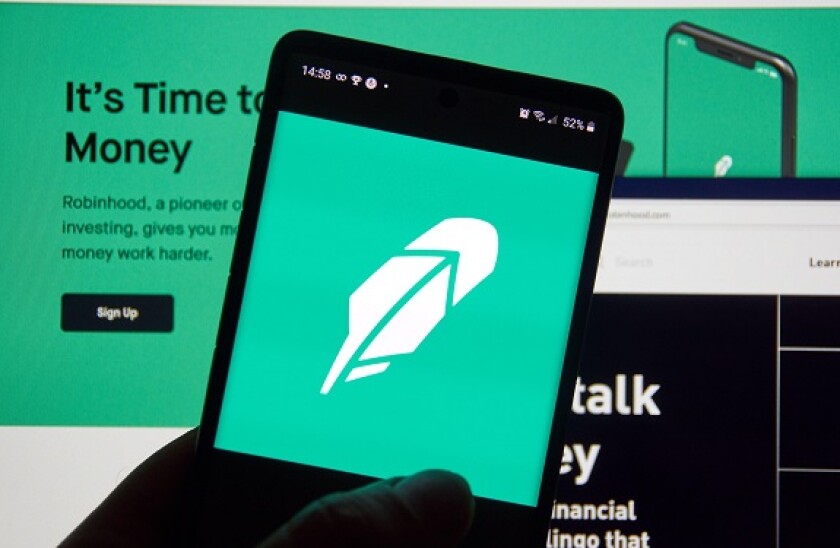Robinhood has indisputably revolutionised retail investing in the US, opening the door for unprecedented numbers of people to engage in no fee trading of individual shares and much more besides. The retail investing boom helped spur US markets to new highs in the shadow of the Covid-19 pandemic and may even have preserved the value of some troubled stocks.
Now, through a recently launched product called IPO Access, the company is allowing its customers to take part in new listings and potentially benefit from IPO discounts that have hitherto been the preserve of big money managers.
The timing of the launch of this product, just before the company’s own stock market listing, is fortuitous, to say the least. It means that Robinhood itself will be one of the first test cases as it seeks to level the playing field between institutional and retail investors.
If equities are to remain the most open of the capital markets, shouldn’t everyone have the same chance to take part in stock market listings? After all, as soon as the stock settles on the exchange, anybody can buy shares in the company, so why should they not have the same access during the IPO?
It is a simple and, in some ways, a fair argument. But there are still plenty of reasons IPOs are not a suitable product for retail investment, even with the latest whizzy apps.
First-day IPO “pops”, as they are often called by the financial press and bankers, are just one potential effect of the heightened early volatility that tends to accompany IPO pricing. But if things go the other way, dramatic early trading falls can produce huge losses in hours.
This is because an IPO is a price discovery exercise in which banks juggle the often inflated expectations of a company going public with investors’ desire to buy a stock cheap and watch it grow.
If investors feel that they have a great deal on their hands, they tend to buy more in the aftermarket and the stock shoots up. But if they are not happy, they can quickly lose faith and run for the hills. This famously happened in March, when Deliveroo, another hyped up tech stock, was listed in London and lost around 30% of its value in a single day after IPO investors lost their nerve over the valuation at which the deal had been priced. Even now, Deliveroo is still trading around 22% below the IPO price.
This comes with the territory for an institutional investor that buys IPOs all the time. The problem for retail investors is that they are merely bystanders in the price discovery battle. They do not have the ability to provide feedback like large institutional asset managers can, and their small allocation, even collectively, gives them little influence once a deal has priced.
Retail buyers could be happy that they have got a great deal, but if one large hedge fund or asset manager decides to trim its position, the effect on the stock price can be disastrous.
Sometimes a sell-off isn’t even caused by a lack of faith in the company, but merely a decision to sell excess stock after receiving a larger than expected allocation in response to an inflated order. Either way, a retail investor can only sit and watch the proceedings unfold.
Deliveroo is a good example not only of a troublesome IPO but also of retail investments turning sour. That is because the company, like Robinhood, offered its customers the chance to buy shares at listing. When the deal was priced in March, 70,000 of those customers watched in horror as the paper value of their investments plummeted.
They were particularly hamstrung in that case because UK IPOs trade conditionally in a grey market for institutional investors before the shares are settled, so they could not even sell their positions as the stock was tanking.
This is not to say that retail investors should be totally banned from taking part in IPOs. Many of the same arguments against investing in IPOs hold true for smaller fund managers as well.
A possible solution to some of the problems could be to make retail tranches bigger, boosting liquidity and reducing the potential impact of institutional investor sentiment on early trading.
However, issuers are unlikely to go for such an option, as they like to have big, long-only asset managers in their share register. For the underwriters, meanwhile, selling chunks of shares to large accounts expedites a bookbuild.
Retail investors must be made aware that the risks of buying into a company at IPO are not the same as buying stock in the secondary market, especially because they are unlikely to make enough investments of this kind for the successes to offset the odd Deliveroo, as the institutional investors and hedge funds do.
When buying an established stock, retail investors are buying a company that often has several years of share price performance history and vast amounts of publicly available financial disclosures to peruse.
IPOs, in contrast, remain a leap of faith. Robinhood says it is making markets fairer, but it seems unfair to take retail investors along for the ride when they are sitting firmly in the back seat.

